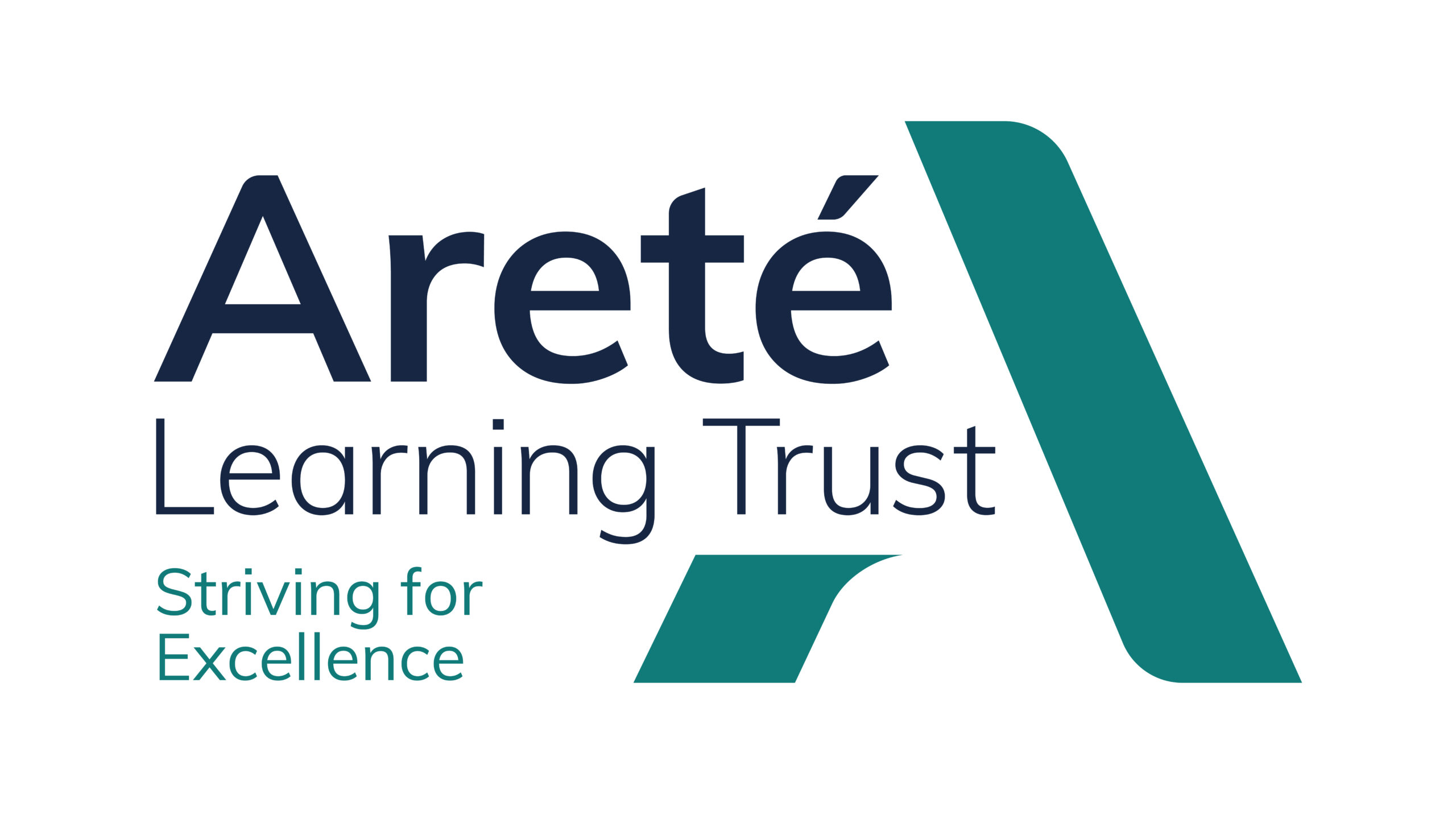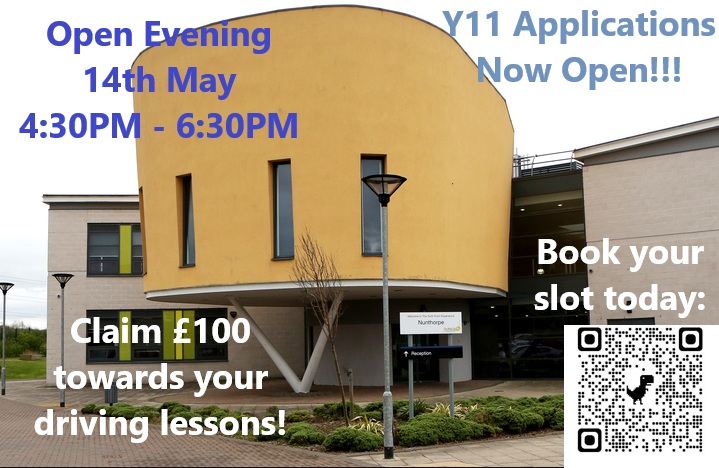
Music
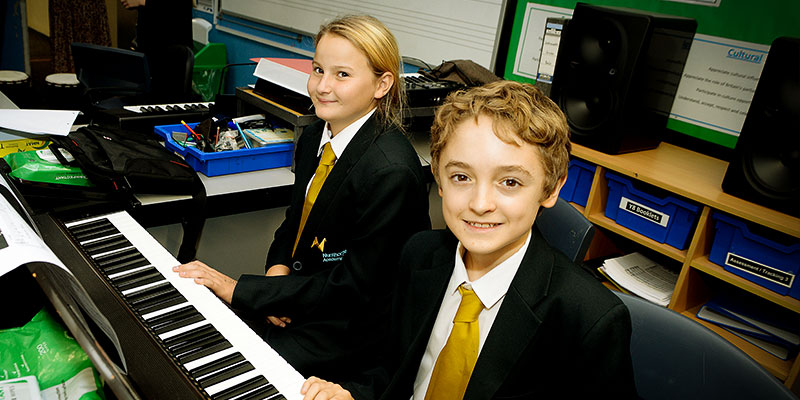
The Music department has two Music teachers, and is visited by a number of peripatetic staff from Tees Valley Music Service (TVMS).
The department is led by Mrs Nicola Richardson who has experience of teaching across KS3, 4 and 5. The main instruments she performs on are flute and piano. She also runs the Academy Choir and is also the Musical Director for the annual production. Mr Ray Rose teaches KS3, 4 and 5 and plays the piano and trombone.
All of the team have complementary skills and each is highly experienced and motivated to ensure that your son or daughter has the best possible musical experience at Nunthorpe Academy.
Music Development Plan
You can access our Music Development Plan here.
Music Department
Mr Ray Rose
Music Teacher
rrose@nunthorpe.co.uk
01642310561 EXT: 1039
Year 6 Transition
In Music we aim to develop confidence in the first lessons, through playing rhythm and pitch games, team building activities through the use of Keyboards, Djembe (African drums) and some singing activities. All these activities are designed to make the young person feel comfortable in the musical environment, and get to know others in the group.
Key stage 3
Programme of Study
The KS3 Music Course provides the foundation for further study at GCSE and A’ Level providing young people with a range of musical skills that will help them understand and enjoy music for life.
The Learning Journey
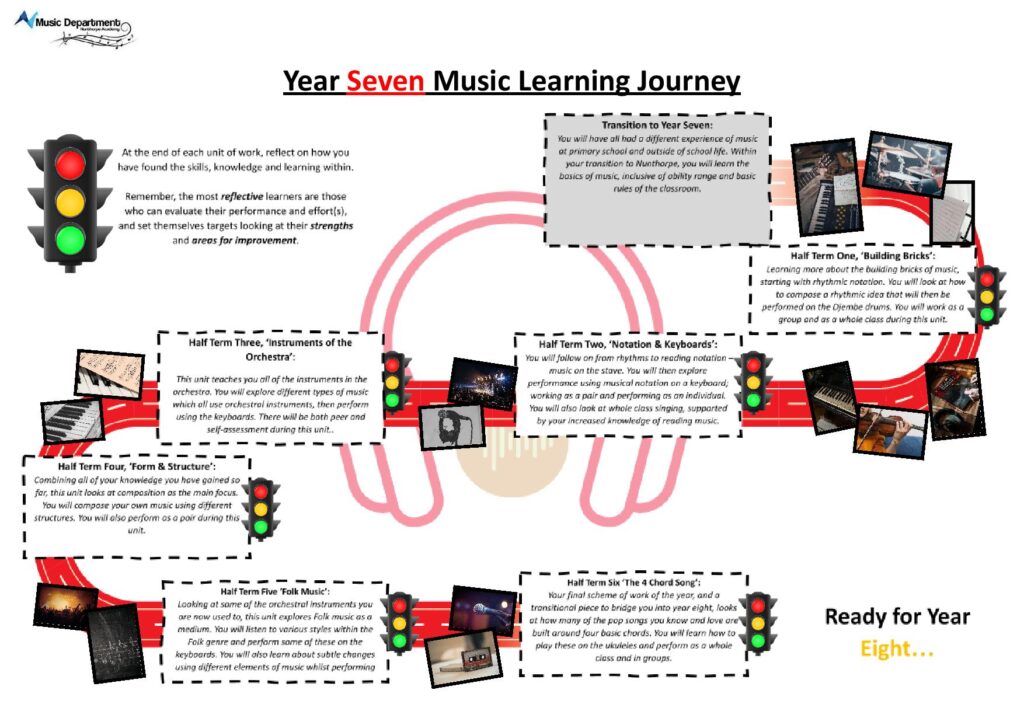
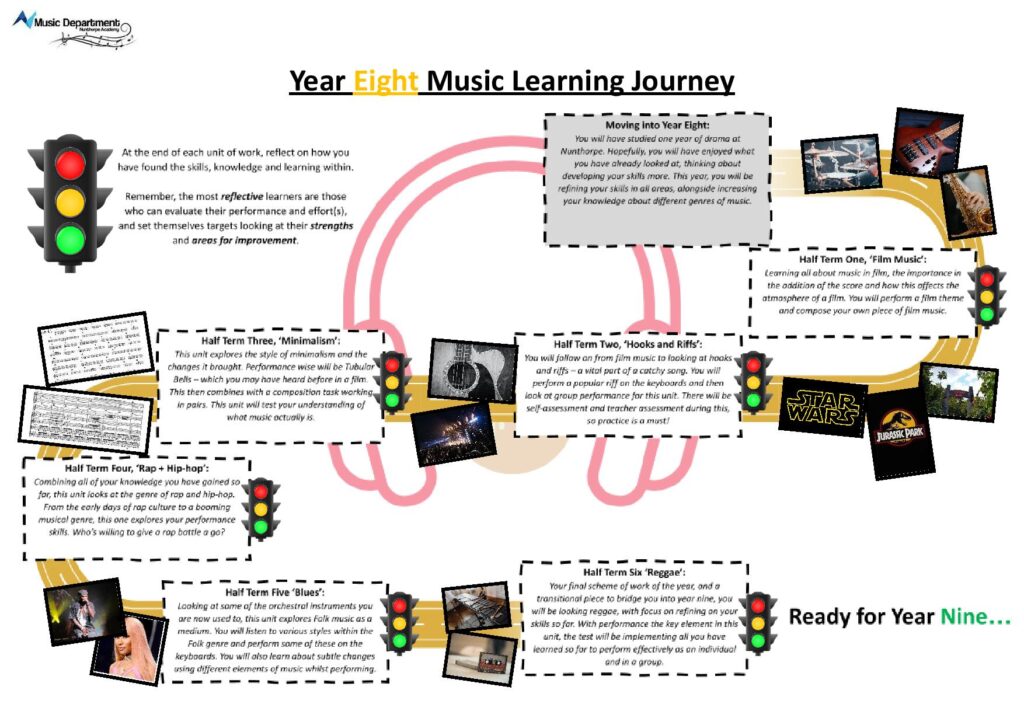
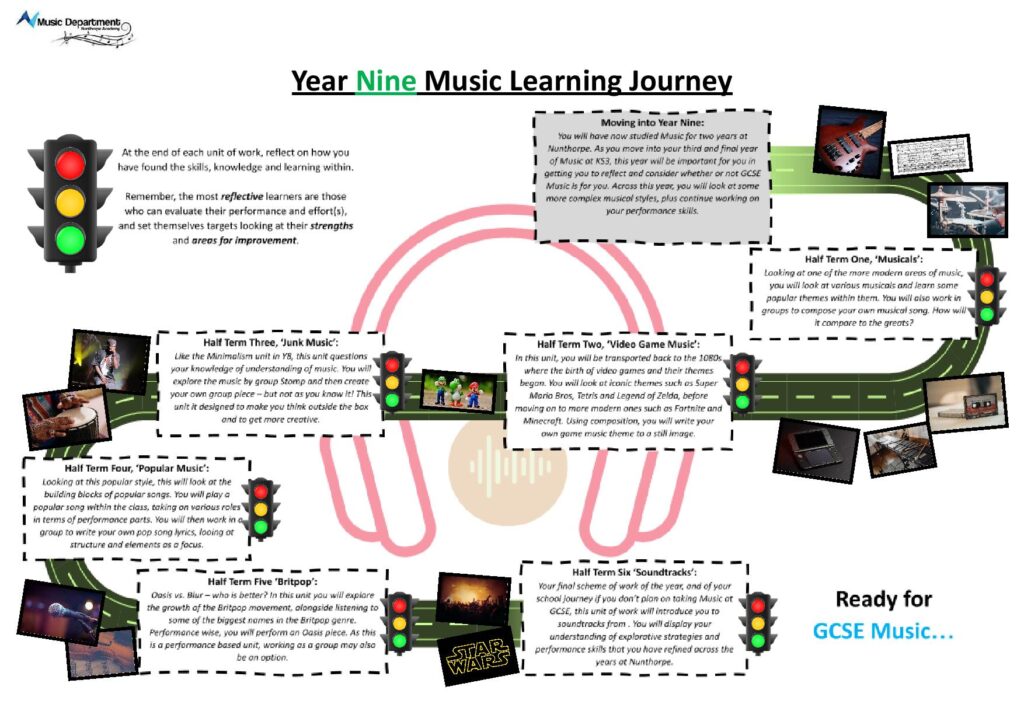
Key stage 4
Programme of Study
We currently offer Edexel Music which gives students the opportunity to study the areas of performance, composition and appraising. This course will build on the work done at KS3 and is suitable for all. Learning to sing or play a musical instrument is beneficial prior to the start of the course but not essential.
The Learning Journey
GCSE Music – Summary of Assessment
Component 1: Performing – Total duration of performances: 4-6 minutes
Non-exam assessment: internally assessed, externally moderated 30% of qualification
A minimum of two pieces, one of which must be an ensemble performance of at least one minute duration. The other piece(s) may be either solo and/or ensemble. Performances must be recorded in the final year of the examination.
Component 2: Composing – Total duration of compositions: 3-6 minutes
Non-exam assessment: internally assessed, externally moderated 30% of qualification
Two compositions, one of which must be in response to a brief set by Edexcel in the year of the examination. Learners will choose one brief from a choice of four, each one linked to a different area of study. The briefs will be released during the first week of September in the academic year in which the assessment is to be taken. The second composition is a free composition for which learners set their own brief.
Component 3: Appraising – Written examination: 1 hour 45 minutes 40% of qualification
This component is assessed through a listening examination paper set by the Edexcel. The first Section A includes the set works, a musical dictation question and a skeleton score question. Section B is an extended writing question featuring comparison between an extract from one of the set works and one extract of unfamiliar music.
- Area of study 1: Instrumental Music 1700-1820;
- Area of study 2: Vocal Music;
- Area of study 3: Music for Stage and Screen;
- Area of study 4: Fusions.
Homework
Students will be expected to complete homework regularly to ensure understanding of the areas being covered. Practising their chosen instrument should be ongoing each day, and students will need to work on compositional ideas at school and at home.
Setting
All GCSE music students are taught in mixed ability groups.




